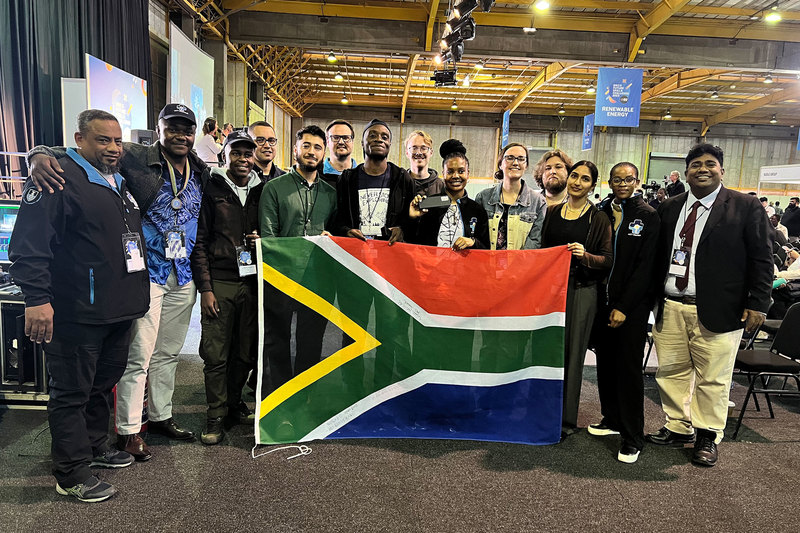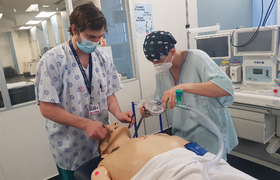Revolutionising assistive robotics: Global insights from the BRICS Future Skills Challenge 2023
11 October 2023 | Story Nicola Bruns. Photo Sudesh Sivarasu. Read time 3 min.
South Africa is a vibrant hub for innovation, especially in the biomedical field. It is a nation that, over the years, has been pushing the boundaries of healthcare, blending cutting-edge technology with age-old wisdom. The emphasis on global collaborations, primarily through platforms like the BRICS Future Skills Challenge, strengthens its commitment to this sector. And University of Cape Town (UCT) MedTech is a beacon of medical innovation and research.
As an interdisciplinary unit, it fosters collaboration between engineers, medical professionals, and researchers, striving to pioneer advancements in medical technology. Emphasising patient-centric solutions, UCT MedTech is committed to addressing the diverse healthcare challenges of the African continent and beyond. From state-of-the-art prosthetics to breakthroughs in medical devices, the institution is at the forefront of creating globally relevant and locally adaptable technologies. Their emphasis on nurturing young talents, as seen in their pivotal role in the BRICS Future Skills Challenge, reinforces their vision to be a catalyst in the ever-evolving world of healthcare innovations.
The BRICS Future Skills Challenge 2023 exemplified this very spirit of innovation. UCT MedTech’s leadership in the Manufacturing Robotics Challenge set the tone for what was a transformative event. Hosted at the Nasrec Expo Centre in Johannesburg, it beckoned talented minds from Brazil, Russia, India, China, and South Africa, with the shared vision of providing groundbreaking solutions to globally relevant challenges.
International collaboration
Global challenges, particularly in the realm of healthcare, necessitate international collaboration. There’s a shared humanity to health issues, making them universal and local. South Africa, with its rich history of medical research and its emerging prowess in biomedical engineering, is uniquely positioned. Platforms like the BRICS challenge ensure that there’s an interflow of knowledge and that solutions are globally relevant and locally adaptable.
“In the age of automation, the future belongs to those who embrace the dance between human ingenuity and robotic precision.”
Professor Sudesh Sivarasu, from UCT MedTech, reiterated, “In the age of automation, the future belongs to those who embrace the dance between human ingenuity and robotic precision. Our BRICS Future Skills Challenge on Manufacturing Robotics is at the stage where innovation and skills unite to shape tomorrow’s workforce.”
Innovation
This year, teams had to create robotic assistive devices for the disabled community. Three days of the main event, from design ideation to actual manufacturing and the high-stakes “Lion’s Den” presentation, mirrored the real-world challenges that any biomedical innovator would face.
The innovations that emerged – Brazil’s Robotic Wheelchair and South Africa’s Wrist Rehabilitation Device, Exoskeleton for Lower Limbs Rehab, and Autonomous Personal Robot – are testament to the power of global collaboration.
“During the challenge, South Africa’s ingenuity was shown again and again. The participants are provided with the same set of components and tools, yet every group developed a completely unique solution. This is just an example of what South Africans are capable of and their “let’s get it done” mentality,” said UCT MedTech’s Edmund Wessels.
 This work is licensed under a Creative Commons Attribution-NoDerivatives 4.0 International License.
This work is licensed under a Creative Commons Attribution-NoDerivatives 4.0 International License.
Please view the republishing articles page for more information.










